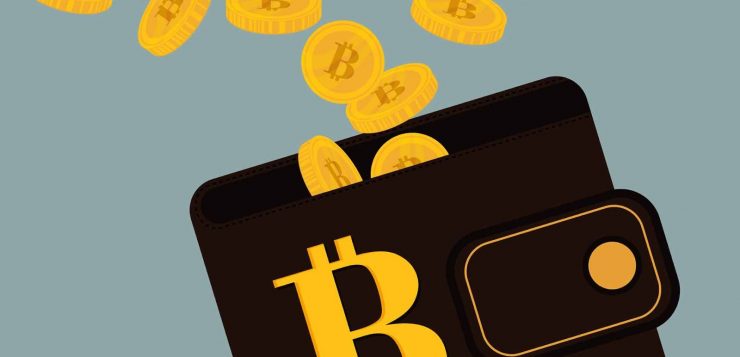A little more than four years ago, Coupa Café, a caramel-macchiato joint in Palo Alto, began accepting bitcoin. This was shortly before the first big bitcoin rush briefly pushed the cryptocurrency’s price from about $100 to more than $1,000. At the time, two or three Coupa customers a week would pay their bills with bitcoin, says co-owner Camelia Coupal. Today, the number is … still two or three people a week. “It’s a really minimal part of our sales,” she says. “It’s really just a quirky thing for our customers.”
That’s the story of bitcoin this past year: The cryptocurrency has made fortunes for speculators, but—for that reason and others—it hasn’t been much use as a medium of exchange. Except in countries such as Venezuela, where inflation makes the local money even more volatile than bitcoin prices, its use by online merchants is virtually zero and shrinking, according to Morgan Stanley. When businesses like Coupal’s started accepting bitcoin, advocates predicted it would eventually replace money. Those voices have grown quiet. “The value of bitcoin is really predicated on its being a useful means of transactions,” says Jacob Leshno, an assistant professor at Columbia Business School. “If you take that away, all you are left with is a bubble asset.”
In 2017 bitcoin’s value rose from about $1,000 to as much as $19,000, often with swings of thousands of dollars a day. (As of publication, it’s trading at about $15,000.) Governments including China’s and Japan’s tightened the rules governing cryptocurrency businesses, and China has shut down its exchanges. Bitcoin’s popularity has also made its network much slower and sent transaction fees spiraling. In late December, sellers had to choose between waiting hours and sometimes days for their transactions to go through or paying an average $55 fee to jump the line. (In mid-2016 such fees topped out at about 15¢.) That’s made bitcoin impractical for everyday transactions, such as $3 cups of coffee.
Some bitcoin developers are trying to tweak the network software to speed transactions, but disagreements about the approach have led some groups to split off and create their own smaller networks. “Startups need to be aware that they are building a house on moving ground,” says Michael Dunworth, chief executive officer of Wyre Inc., a cross-border payment service using the bitcoin network.Because only 21 million bitcoins will ever be issued, there’s a case to be made that the currency is simply evolving from a transaction network to digital gold. Longtime advocates say different. “At the end of the day, it is bitcoin’s use in commerce that drives its price and further adoption,” says Roger Ver, the advocate known as Bitcoin Jesus, who spent bitcoin last year to cover his startup’s 60-person payroll and book hotels on Expedia. (He’s become a vocal champion for “bitcoin cash,” a cryptocurrency that’s facing an internal insider-trading investigation after having splintered from bitcoin last summer.)
Amid the current fervor, Ver is the exception. “No one is spending bitcoin,” says Iqbal Gandham, managing director at EToro Ltd., a cryptocurrency exchange. “It could be the most expensive piece of pizza you ever bought.”
Read more at:
https://www.bloomberg.com/news/articles/2018-01-04/you-d-be-crazy-to-actually-spend-bitcoin







